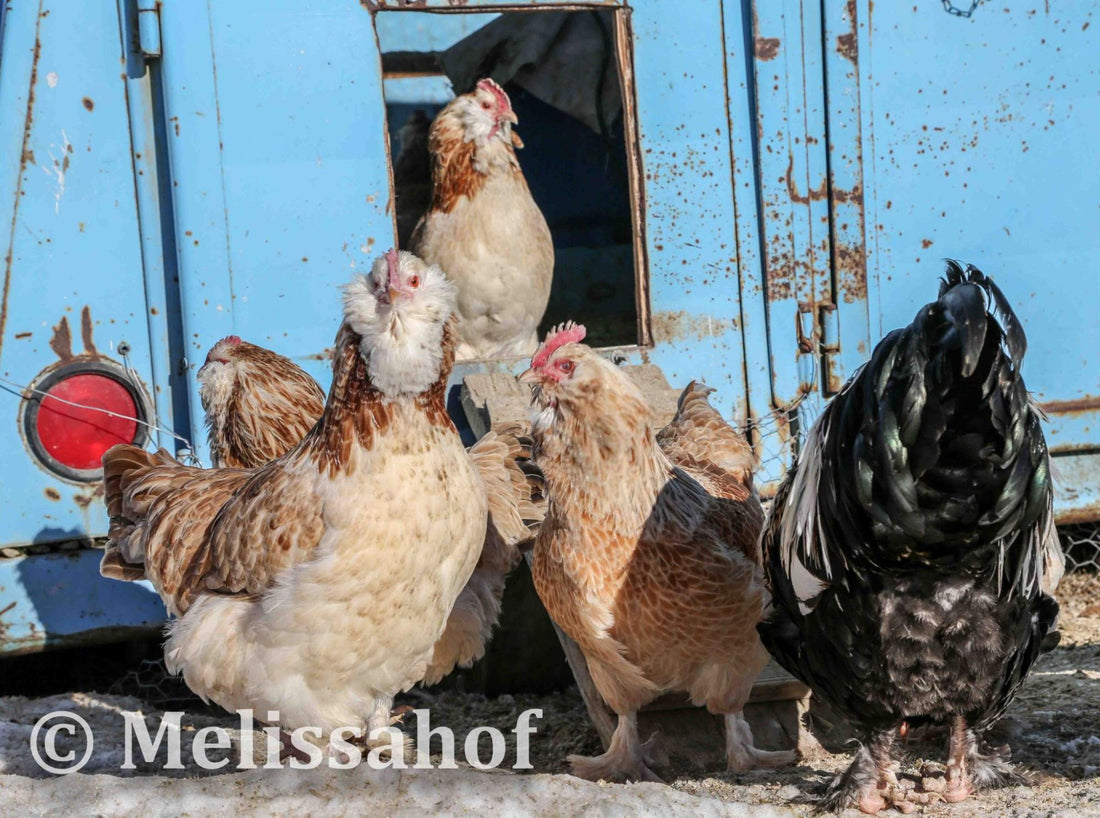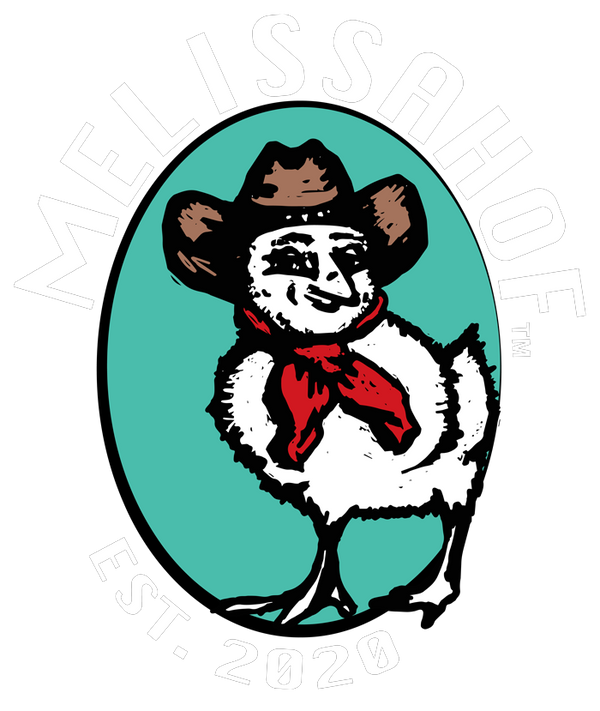
What is a Heritage Chicken? Uncovering the Rich Legacy of Traditional Poultry
Share
Did you know that the chicken you buy in grocery stores these days has little in common with the birds that sustained our ancestors?
While the modern broiler hybrid chicken has been bred for rapid growth and commercial productivity, heritage chickens are living links to the past—traditional breeds that have been raised for centuries.
What is a heritage chicken? This bird is more than just nostalgic; it also plays a vital role in sustainable farming, biodiversity, and preserving valuable genetic traits. But what characteristics make a chicken heritage?
Let's explore the fascinating world of heritage chickens and why they will keep your flock hearty.
What Defines a Heritage Chicken?
A heritage chicken is more than just a label. To meet the criteria for this designation, a chicken must come from a breed recognized by the American Poultry Association (APA) before the mid-20th century.
It is the type of chicken that was popular and common before modern commercial birds took over all meat and egg production. These chickens must be bred naturally and grow at a slower, natural rate—reaching market weight in 20 to 24 weeks.
This criteria is different from those for modern broiler hybrids, which grow from hatch to harvest in a mere eight weeks. Additionally, they must be capable of living long, productive lives in outdoor environments and reproducing independently.
Heritage chickens are bred for the quality they offer: hardiness, longevity, and food production. They serve two main purposes: they'll be raised for both eggs and meat, making them an asset to any small-scale farm or homestead.
The Importance of Heritage Breed Chickens in Sustainable Farming

Farmers, like Melissahof, value heritage chickens for their ability to thrive in natural environments. Unlike their commercialized hybrid counterparts, which often require antibiotics and highly controlled conditions, heritage chickens are hardy birds.
They are well-adapted to outdoor living, foraging on pasture, and immunity from diseases that often plague poultry raised in large-scale commercial facilities. Their resilience is what truly makes them a cornerstone of sustainable farming practices.
At Melissahof, a small-scale holistic farm in Wyoming, the complete lifecycle of poultry is implemented with care. We raise heritage chickens ethically, benefiting from intensive pasture rotation alongside cattle.
Besides allowing the chickens to forage for natural foods, this system also enriches the soil with valuable nutrients from their manure—a win-win for both the poultry and the farm's ecosystem.
Why Heritage Chickens Matter for Biodiversity
Commercial large-scale farming practices have dramatically lessened the diversity of chicken breeds. According to the Livestock Conservancy, more than 90% of the poultry in the United States comes from just a few commercial breeds.
This lack of diversity creates a dangerous vulnerability—if a disease were to target one of these dominant breeds, it could decimate the poultry industry and food system.
Besides, heritage chickens are significant in maintaining genetic diversity. These breeds have traits that have been naturally selected over generations, making them:
- More resistant to certain diseases
- Better suited to changing climates
- Capable of producing high-quality meat and eggs
By raising these chickens, farms are assisting in preserving not only individual breeds but also the genetic health of poultry flocks across the country.
Different Heritage Chicken Breeds for Dual Purpose

Dual-purpose chicken breeds are highly valued for their ability to provide both meat and eggs, making them an excellent choice for small-scale farms or homesteads in Wyoming. These breeds are especially beneficial if you breed your flock and utilize the extra roosters for meat.
While they may not lay eggs as prolifically as breeds specifically bred for egg production, their hardiness and robust nature offer significant advantages in cold climates. Their size and resilience make them well-suited for the challenges of a free-range environment.
Here are the dual purpose heritage breeds represented by Melissahof:
Blue-laced Red Wyandottes
Wyandottes are a beautiful breed with strikingly laced feathers. Developed in the US in the 1870s, the poultry breed originated in upstate New York. It is named for the indigenous Wyandotte Nation of the region, though the chickens have no direct historical association with that Native American tribe. Today, the Wyandotte breed contains several color variations.
Buckeye
Developed by Mrs. Nettie Metcalf of Warren, Ohio in 1896, she named her poultry breed for Ohio’s nickname, “the Buckeye State.” Buckeyes are the only American chicken breed created entirely by a woman. The Livestock Conservancy lists the Buckeye heritage breed at the priority of “Watch.” There is an estimated global population of less than 10,000.
Dominique
Recognized as America’s first poultry breed, barred chickens with rose combs – the Dominique – were recorded as early as 1750 in the US. The breed’s early names include Blue Spotted Hen, Old Grey Hen, Dominico, Dominic, and Dominicker. The Livestock Conservancy lists the Dominique heritage breed as a “Watch” priority. Estimated global population is less than 10,000.
Partridge Chantecler
Named from the French words ‘chanter,’ meaning “to sing,” and ‘clair,’ meaning “bright,” the Chantecler is considered the first Canadian poultry breed with its inception in 1908. Decades later, Dr. J. E. Wilkinson of Edmonton, Alberta developed a Chantecler with a color pattern more suited to camouflaging in free-range conditions. The Partridge Chantecler was admitted to American Poultry Association’s Standard of Perfection in 1935. The Livestock Conservancy lists the Chantecler heritage breed at the priority of “Watch.” There is an estimated global population of less than 10,000.
Salmon Faverolles
Originally bred in France to lay eggs for the Paris winter market, Faverolles are now listed as threatened with fewer than 5,000 chickens registered globally. The breed is named for the village of Faverolles, located in the Eure-et-Loire region just southwest of Paris. The Faverolles were imported into America in 1901.
Each of these heritage breeds offers a balance of egg production and meat, making them an excellent choice for Wyoming homesteaders or small-scale farmers seeking sustainability and versatility in their flock.
The Taste and Quality of Heritage Chicken

Along with providing sustainability and biodiversity benefits, heritage chickens are simply delicious. As these birds are grown naturally, their meat has a firmer texture and is richer in flavor than the soft and bland meat of broiler hybrid chickens.
Because heritage breeds grow slower their meat develops more naturally, which gives us a more satisfying and flavorful meal. At Melissahof, the rooster meatbirds, affectionately called McNuggets, are raised with care on pasture until they meet their destiny as a nutrient-dense food source.
These birds are healthier and offer a depth of flavor that’s rare in today’s fast-food culture. For those who care about the source of their food, heritage chicken truly stands as the gold standard.
The Benefits of Heritage Poultry for Small Farmers
Raising heritage chickens is a viable option for small-scale farmers and backyard poultry keepers. Because these birds are dual-purpose, they can provide meat and eggs over a longer lifespan.
Moreover, heritage breeds are more resilient and require fewer interventions, such as antibiotics. This makes them a more natural choice for those committed to organic or regenerative farming methods.
For farms like ours that focus on the health and vitality of their flocks, investing in heritage poultry ensures a sustainable and ethical farm. Our chickens thrive in the Wyoming climate and contribute to a holistic and resilient farming ecosystem.
Bringing Heritage Chicken to Your Table

If you're curious about adding heritage chickens to your farm or flock, there's never been a better time. At Melissahof, we offer everything you need to start—from hatching chicken eggs shipped nationwide to pullets ready to join your egg-laying flock within Wyoming. For Wyomingites, Melissahof also offers doorstep delivery and on-farm pickup of live poultry. Additionally, you can purchase Melissahof heritage chicken eggs and meat products. By choosing heritage breeds, you’re supporting sustainable farming practices and helping to preserve valuable genetic diversity for future generations.
Imagine biting into a rich, flavorful roast chicken, knowing the bird you're enjoying was raised ethically and sustainably. Heritage poultry promises a return to traditional farming values and a brighter future for the planet.
Conclusion: Join the Heritage Movement
We hope you now understand what a heritage chicken is and why Melissahof thinks it’s superior!!. Heritage chickens are more than just yard birds—they are vital to preserving biodiversity, promoting sustainable farming, and offering a superior eating experience.
Farms like Melissahof are leading the charge in this moment, offering ethically raised, high-quality birds that help keep these traditional breeds alive.
Are you ready to make a difference in the world of poultry farming? Whether you want to expand your backyard flock or support ethical farming practices, Melissahof has the necessary heritage chickens. Contact us today to start your journey toward a more sustainable, flavorful, and ethical poultry-keeping experience.

